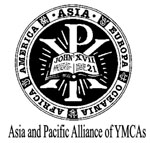|
On the first day of training, opening worship was held and the site managers spent the whole day to share reports of their GATN sites. Based on ‘CHANGE’ principle, site managers self-evaluated their GATN sites and programs of the last 5 years and shared how it impacted the communities, participants and the YMCA’s aspects. Through this session, participants could learn from the strengths and weaknesses of each other’s GATN sites.
On the second day, we visited and evaluated Chiang Mai YMCA GATN site ‘Tha Nuea village’. Chiang Mai YMCA has been working with Tha Nuea village for the last 10 years. Four other nearly villages also joined together YMCA in this community work. Village leaders shared that, through GATN, host families and participants learned from each other through village volunteer work through the homestay program. Working closely together, YMCA and the village communities learned about climate change and carried out a water preservation project. They also worked on an organic farm and produced handicraft for their source of sustainable income. These projects were also tied up with youth empowerment programs to prevent drug abuse among young people in the villages. GATN managers were able to confirm the positive developments in the village arising from GATN program. The most memorable words from the leader of the village was “we work with warm heart and trust”.
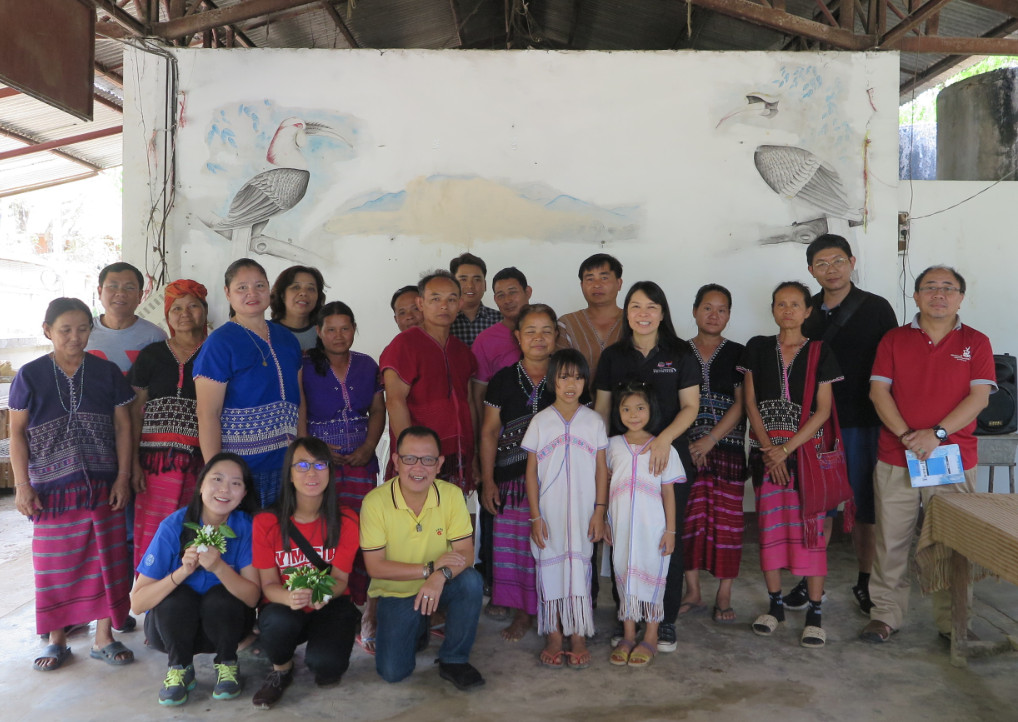 |
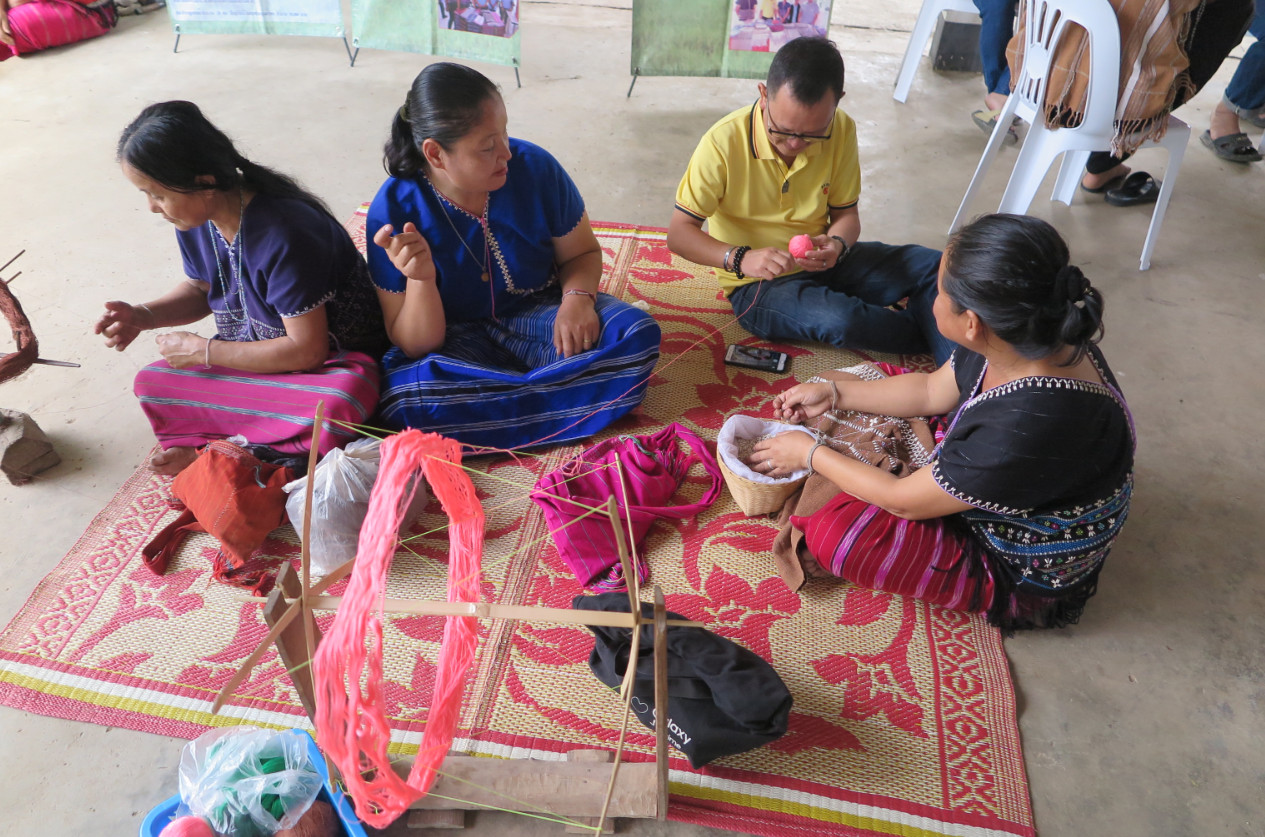 |
| ↑ With Tha Nuea Village Peoples |
↑ Experience making handicraft |
Continuing from the site reports and site evaluation in previous two days, site managers developed an evaluation checklist to be shared with other site managers at the training. The groups discussed deeply the basis and purpose of GATN, the importance of the CHANGE principles, how we strengthen our work with the community, etc. In relation to preparing for site evaluation, site managers also emphasized the need to focus on training and evaluation for YMCAs from sending countries.
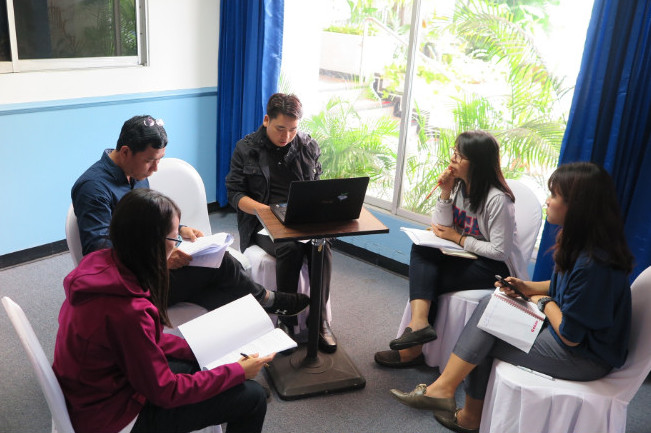 |
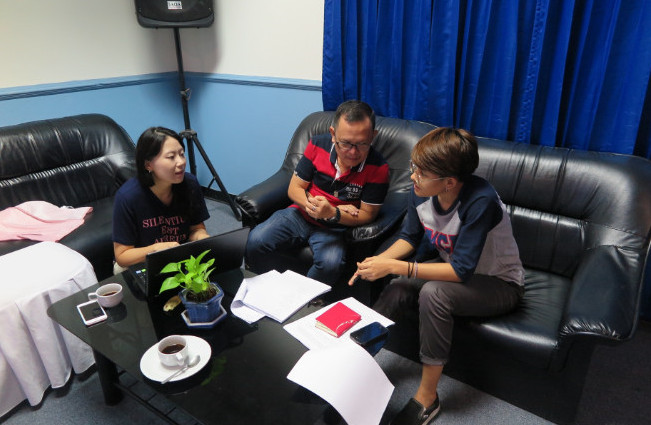 |
| ↑ Group Discussion on GATN Site External Evaluation |
Kuala Lumpur YMCA as invited to share their experiences on the tie-up of GATN with the Social Impact Experience (SIE) of AirBnB. The SIE can be a useful platform to introduce GATN short-term program. Through this platform, local YMCA can share their GATN program through the online tool and provide 3~5 hours short time program to the visitors who has limited time but would like to spend it in a meaningful way. This can also be quite a novel way to introducing GATN movement to the public. Kuala Lumpur YMCA has signed up for this SIE- AirBnB. In the last session of managers training we discussed plans and preparation for the GATN Marketplace that will be held during the World Council. GATN will have two booths at the World Council Exhibition where we will have a photo exhibition of GATN activities in the AP region. We will also make a common brochure pocket to introduce GATN sites around the AP region.
In conclusion, it was indeed precious 3 days for GATN managers from receiving and sending countries. Through the sharing and evaluation, and looking back on the past of GATN, most of them shared about next step of GATN as a movement not just as a program. We believe we can take a step forward together for the sustainable community through global alternative tourism and we believe we will move forward with APAY network.
~ Lee Jiyoon, APAY GATN Intern
GATN Basic Training in Shanghai
The National Council of YMCAs of China hosted the GATN Basic Training that was held at the Shanghai YMCA from 23-27 April 2018. Thirty two (32) participants from 10 local YMCAs and YWCAs of China and one each from Singapore, Cambodia and Mongolia attended the training. The training was facilitated by Steve Chiu from Taichung YMCA and Chan Beng Seng, GATN Coordinator of APAY. Of particular significance, this was the first significant collaboration on programs between APAY and YMCA China.
The APAY has been developing this Global Alternative Tourism Network for a few years among the YMCAs in Asia Pacific region. The main purpose of GATN is change the negative impact of mass tourism and to promote a form of travel that is sustainable and responsible.
Alternative Tourism promotes fair and just forms of traveling activities between members of different communities, in order to achieve mutual understanding, solidarity and equality amongst the participants. It is a form of tourism that has minimum negative impact on the physical and sociocultural environment in destination areas and the local community is substantially benefited from the tourism programme.
Unlike mass tourism, the main characteristics of the YMCA Alternative Tourism follow the “C.H.A.N.G.E” principles that seeks to be Community centered, Holistic in approach, Advocating global citizenship and networking, Nature conserving, Gender and child sensitive, and Economically viable.
At the local YMCAs, Alternative Tourism has been an effective programme for community organizing, movement building, promoting community service and developing volunteerism. It is also an effective education tool for advocacy on important issues such as environment protection and climate change, sustainable development, global citizen and human rights. And for many YMCAs, Alternative Tourism is also an effective programme for income generation.
The following activities are part of a series of programmes planned to strengthen the alternative tourism engagement of APAY which specifically aims:
- to provide basic understanding on alternative tourism and basic skills in developing and marketing alternative sites
- to strengthen the implementation of CHANGE principles
- to discuss current issues and trends in alternative tourism,
- to provide tools and guidelines in building sustainable and responsible tourism programs
- to contribute to the income generation capacity of the local YMCAs
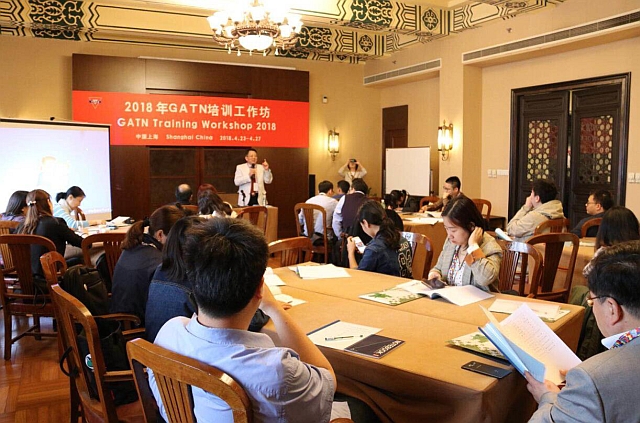 |
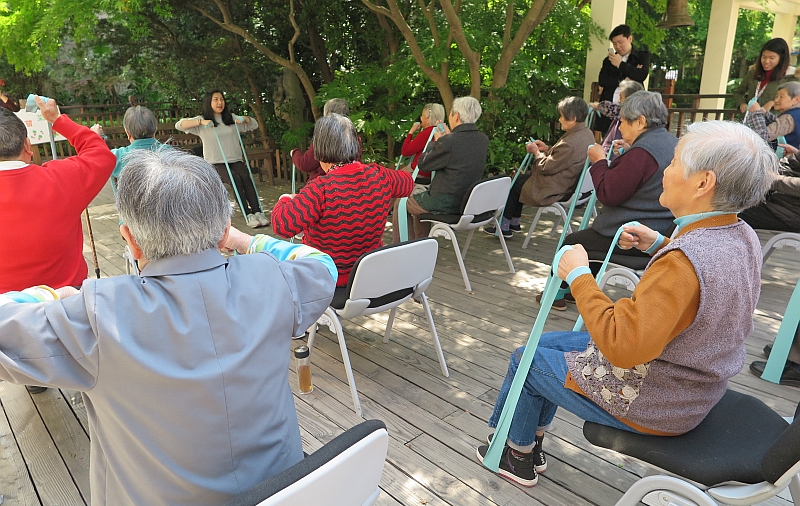 |
| ↑ YMCA and YWCA participants at the workshop |
↑ Morning exercise with the residents of Loushan Home for the Elderly |
The training started with a simple devotion where Pastor Zhai Weizhong, a member of the Shanghai YMCA, shared on traveling responsibly in order to preserve the beauty of God’s creation. Mr. Wu Jian Rong, NGS of YMCA and YWCA in China, in his opening address encouraged the participants to be innovative and professional in their work in order to meet all the challenges and changes that confront YMCAs today.
One of the highlight of the training was the site visit to the Loushan Community Center that houses the Luoshan Home for the Elderly and the Hua Ai Children Training Center. The Community Center is one of many that are being run by the Shanghai YMCA. After a tour of the facilities in the morning, the group planned and executed an impromptu program for and with the elderly residents of the community center.
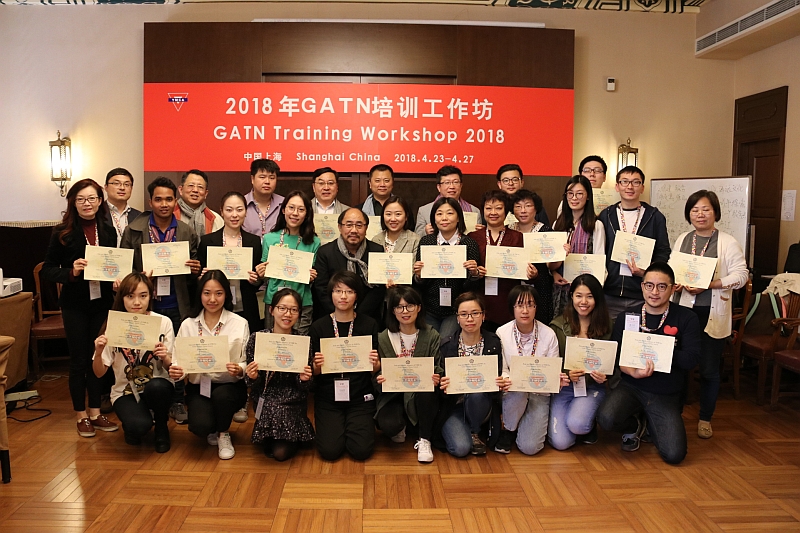
|
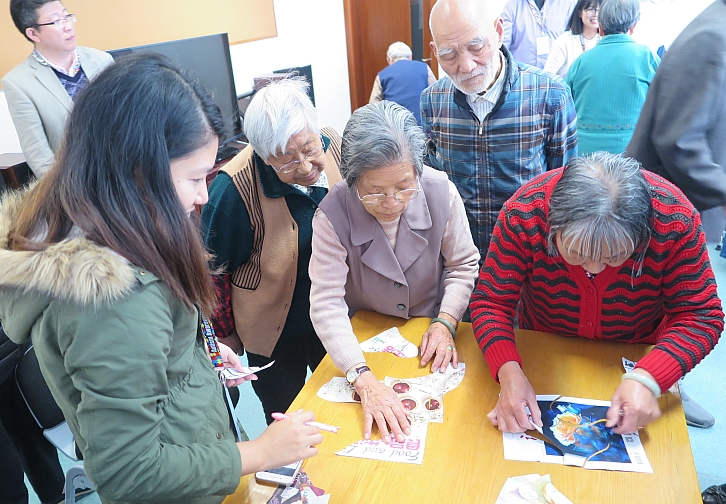 |
| ↑ Graduation photo |
↑ Participants designed and executied some impromptu games and activities for the residents of Loushan Home for the Elderly |
The training concluded with local YMCAs designing and presenting sample alternative tourism proposals using the tools and knowledge learned from the workshop. As an active sending YMCA, Steve Chiu provided useful suggestions and evaluations to strengthen each of the proposals.
The generous hospitality provided by the NCY China was warm and afforded the participants to participate fully in the program. As mention earlier, this GATN workshop was very special because, this was the first significant collaboration on programs between APAY and YMCA China. We look forward to NCY China’s active participation in the future programs of APAY.
~ Chan Beng Seng, GATN Coordinator
APAY Green Ambassadors Training Geared Towards Greener Future
With the objective of educating the YMCA youths the importance of climate change education and taking action on reducing carbon footprint emissions, the Asia and Pacific Alliance of YMCAs (APAY) and Sao Hin YMCA organized the 6th Green Ambassadors Training in Chiang Mai, Thailand last 6 – 11 May, 2018.
Since the training aims to hone leaders that will take initiative in building as well as sustaining Green YMCAs and green communities. The four day training included lectures on; Sustainable Developmental Goals (SDGs) and the YMCA responses by Mr. Nam Boo Won, APAY General Secretary that helped the participants to understand the values and principles on YMCA’s involvement in ecological crisis, including how YMCAs in the region could contribute to reaching the goals of SDGs. Furthermore, the workshop on Carbon Emission Calculation by Mr. Colin Lambie of Y’s Men International made the participants realize how a simple change of human behavior or use of lights in our daily life can bring great impacts on the action towards less carbon emissions as well as our communities more sustainable.
The visit to the Environment and Learning Center at Sao Hin YMCA, Mae Moh Power Plant, Mae Moh Mine and Lignite Museum, the organic farm of the Hug Nam Jang Group, and Chae Son National Park made the experience for the attendees more natural. The tour at Environment and Learning Center, Sao Hin YMCA offered different insights as to how the participants can learn from the environmental practice of the said YMCA. The state of the art facilities of Mae Moh Power Plant, Mae Moh Mine and Lignite Museum enabled the trainees to experience and understand how energy is produced and the need to conserve. The warm welcome of Hug Nam Jang Group was also a unique experience for they were able to show that with cooperation and collaboration of the community through organic farming, everybody will benefit more.
Finally, the stay in Chae Son National Park, let the participants experience again how to be one with nature, hence making feel each one of us the importance of preserving sceneries like of that in Chae Son, so that future generation can benefit from it.
The highlight of the training was the presentation of the good practices of each local YMCAs in each country. Each participant was able to present simple yet unique practices that can be adapted by other participants. After which, action plan for the local YMCA of the participant were presented that served as the output for the four-day training. The integration of lectures and over-all experience were present in the action plan.
At the end, everybody went home with aspiration of making small steps that will create a ripple effect for climate change education. Despite the language barrier, the 44 participants from Cambodia, Korea, Laos, Myanmar, New Zealand, Philippines and Thailand, the biggest number of participants in the Green Ambassadors Training were able to form a family, a green family whose advocacy is to promote Greener future. Ms. Patcharin Aviphan, Director of Sao Hin YMCA, coordinated the entire training program.
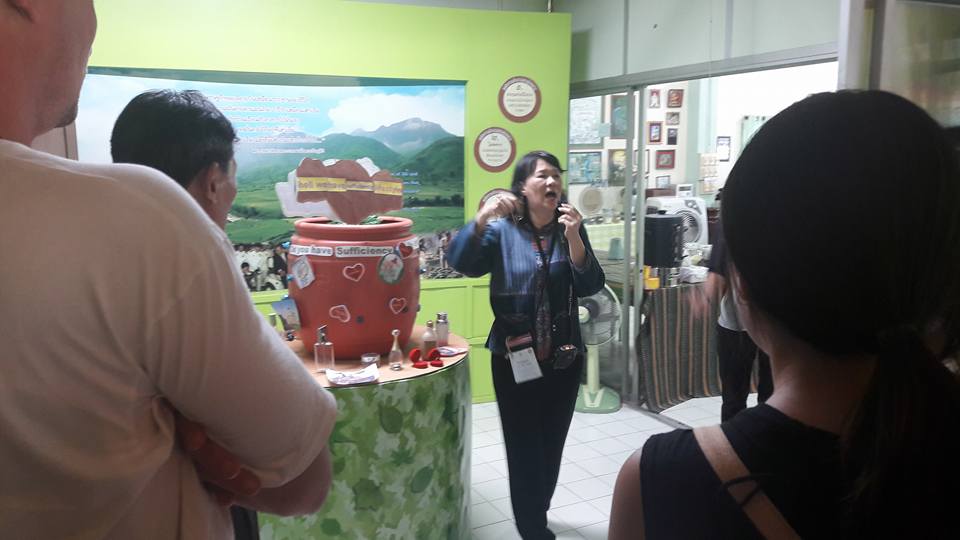 |
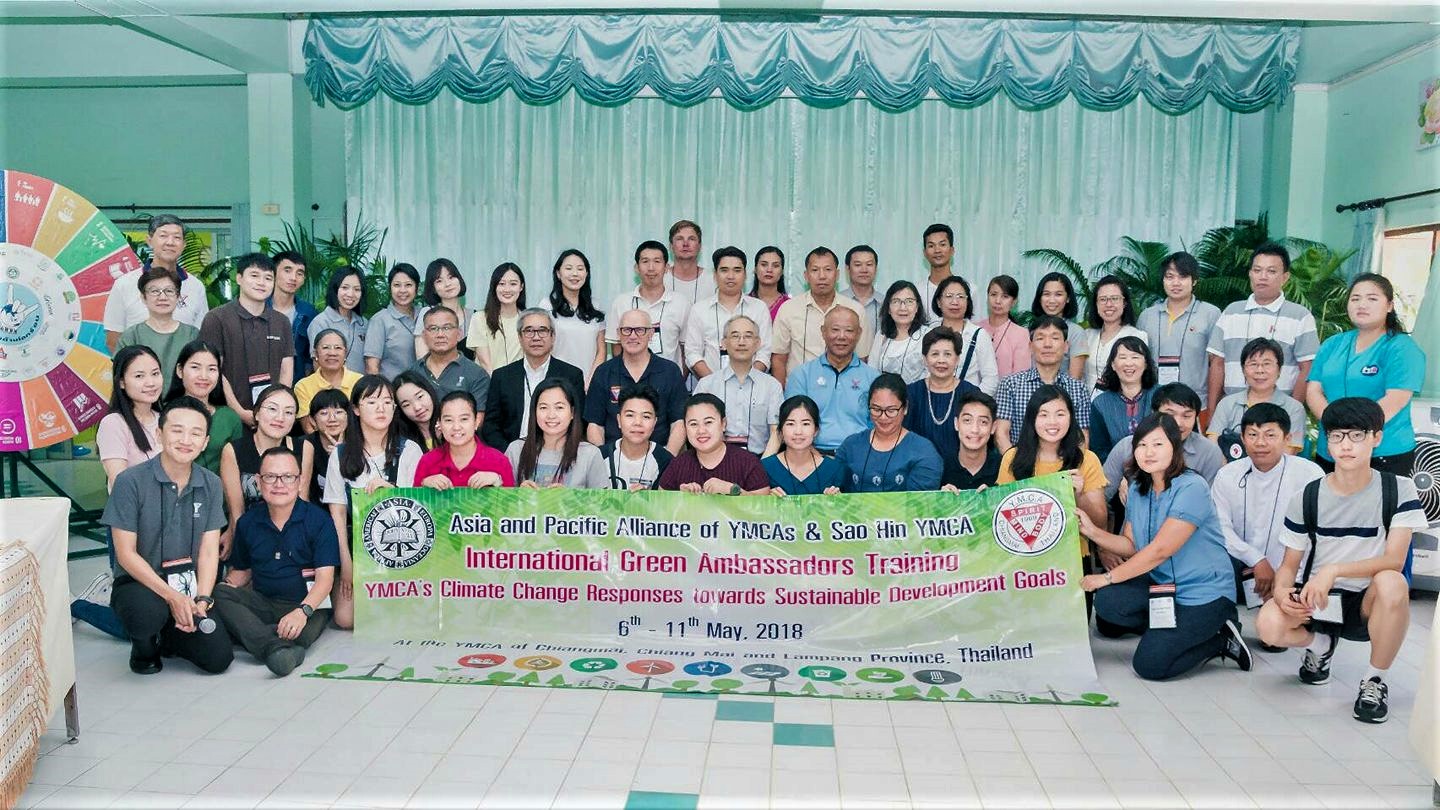
|
| ↑ Ms. Patcharin Aviphan explaining climate change to the participants |
↑ Participants of the Green Ambassadors Training |
~ Ranielle M. Navarro
YMCA of Albay Inc., Philippines

A Paper Crane Campaign for Peace -
A Peace Week Relay Program by Japan YMCA
In the 7th China-Japan-Korea YMCA Peace Forum in Gwang Ju, Korea, in 16-20 December 2017, the Youth’s Common Declaration was made by all the youth participants. The youth in Korea, China and Japan committed to establish “Youth Committee for Peace” in each country, and run a Peace Weeks Relay Program in May as Youth Action Plan, which aims to promote awareness on current peace issues among young people. Under the declaration, the Japan Youth committee for Peace, composed of the youth from Japanese local YMCAs and Student YMCAs, was established and carried out their first mission, Peace Weeks Relay Program.
May 5th marks the 60th anniversary since the Children's Peace Monument was built in the Hiroshima Peace Memorial Park. The model of the monument is a young girl named Sadako Sasakii, who exposed to the radiation of the atomic bomb blast at the age of 2 in Hiroshima. When she was 12 years old, 10 years later after the atomic bomb, she suddenly developed leukemia. Believing that folding paper cranes would help her recover, she passed away. After her death, inspired her friends and one of Hiroshima YMCA youth members started a national campaign to build a monument for peace. Later on May 5, 1958, it was built with funds donated from all over Japan. This story spread to the world, so even today, folded paper crane is a symbol of peace.
For the memorial day of this year, Japanese youth committee members launched a campaign to put out a national call to "fold paper cranes in praying for peace". With the support from 22 local YMCAs and Student YMCAs, and even from Taiwan, more than 22,000 cranes reached to Hiroshima YMCA. These were tied up in a bundle and offered in the memorial ceremony of the Children's Peace Monument by Hiroshima YMCA’s youth, Student YMCA members and the Youth Committee members on May 5. Hiroshima YMCA also set up the booth of folding paper crane. Many families and children made them with the wish of making peace.
Folding paper crane is just a small action, but it expanded peace movement to all the YMCAs of Japan.
Youth Committee for Peace will continue to coordinate peace activities at local level and take part as a youth working group to prepare the next peace forum.
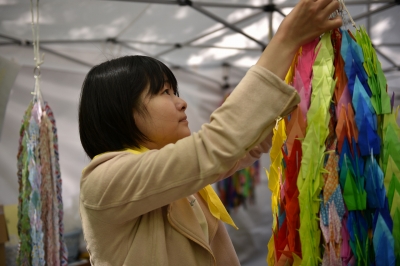 |
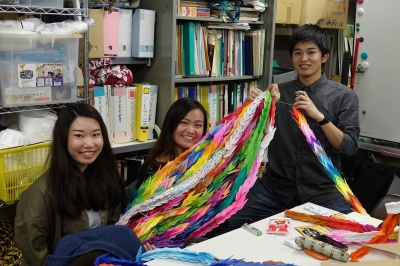 |
| ↑ A bunch of folding cranes |
↑ Hiroshima YMCA Youth members |
~ Ko Changhwi, Intern, NCY Japan /
Tsugumi Seki, Volunteer, NCY Japan
|
